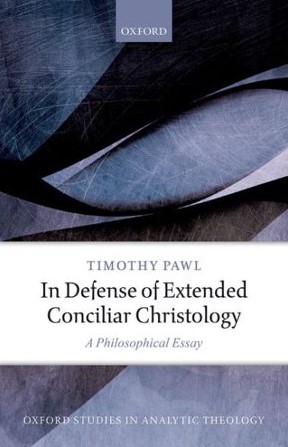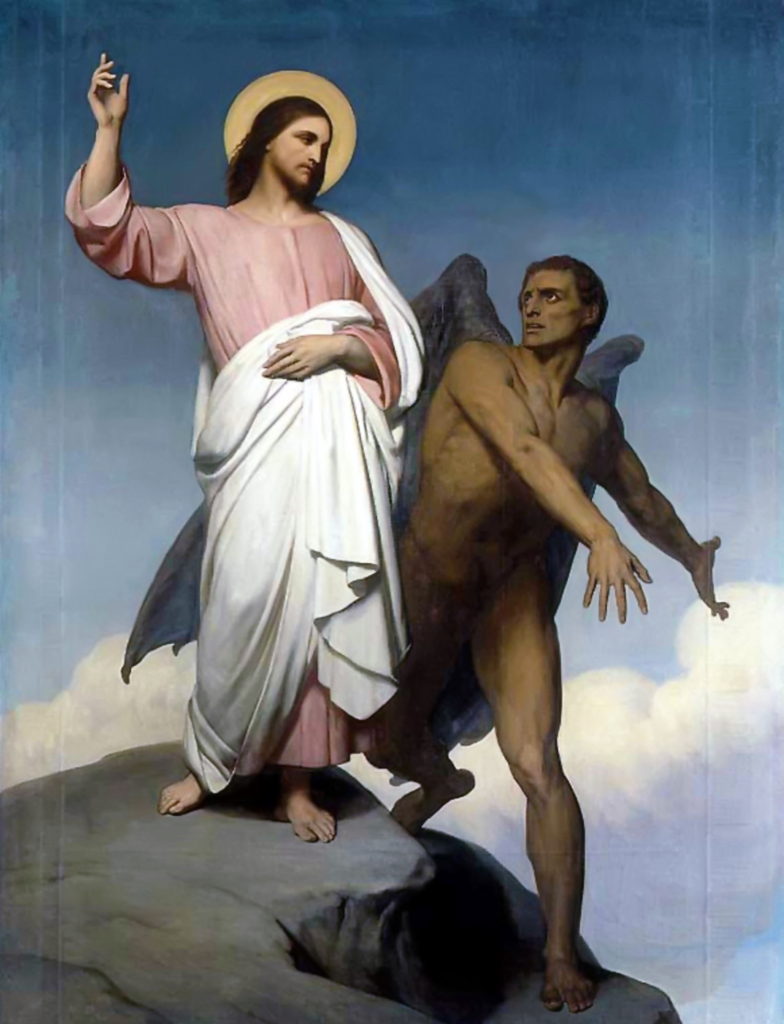|
Listen to this post:
|
Podcast: Play in new window | Download
Subscribe: Spotify | Email | RSS

In this second part of our conversation about his new book, we discuss some of the “extensions” of conciliar christology that Dr. Pawl defends as coherent (contradiction-free).
These include possibilities of multiple incarnations, Jesus’s real temptation, and the common medieval doctrine that “in” his human nature Jesus knows all past, present, and future events.
We also discuss a problem which Dr. Pawl encapsulates in this argument in the book (p. 96). The argument starts with five premises and derives a contraction, which shows that one or more of the premises must be false.
- The Word permanently assumed whatever he assumed in the incarnation.
- The Word assumed CHN [Christ’s human nature] in the incarnation.
- During the Interim state [i.e. when Christ was dead], CHN did not exist.
- All real relations, to be instantiated, require the existence of their relata.
- Assumption [i.e. the relation between the Word and CHN] is a real relation.
- Assumption requires the existence of its relata to be instantiated. (From 4,5)
- During the Interim state, CHN was not assumed. (From 2,3,6)
- It is false that the Word permanently assumed CHN in the incarnation. (From 2,7)
- The Word permanently assumed CHN in the incarnation. (From 1,2)
- Contradiction! (From 8,9)
This looks like a tough problem for the adherent of two-natures theory, since they would seem to be committed to all of 1-5. Dr. Pawl suggests denying either 1 or 2.
We also discuss my objection that a Jesus who knew the day and hour of his future return has, if the New Testament is to be believed, deceived us.
At one point I mistakenly say the Dr. Pawl and I are in a modus ponens – modus tollens standoff. But that’s not right. My modus tollens argument was:

- If Christ is divine, then he wasn’t tempted.
- Christ was tempted.
- Therefore, it is not the case that Christ is divine.
The corresponding modus ponens argument would be:
- If Christ is divine, then he wasn’t tempted.
- Christ is divine.
- Therefore, Christ wasn’t tempted.
I’m sure some Christians think this. But that’s not what Dr. Pawl thinks. Rather, he would argue:
- Christ can be tempted.
- Christ is divine.
- Therefore, it is not the case that if Christ is divine then he can’t be tempted.
Of course, all three of these argument are valid. But only one of them can be sound! Which we should accept depends on what evidence we possess.
But the disagreement between Dr. Pawl and me is better represented as two responses to what we would agree is an inconsistent triad of claims – claims such that if any two are true, then the remaining one is false.

- Christ is divine.
- Christ was tempted.
- If Christ is divine, then he wasn’t tempted.
I deny the first. I hold the second to be a clear and non-negotiable New Testament teaching. And the third seems evident, given that being divine entails being perfect in power, knowledge, goodness, and independence. But the first isn’t actually supported by the New Testament, contrary to a load of dodgy traditional arguments. Thus, we should deny the first.
Dr. Pawl would say that Church tradition requires the first two, so the third should be denied.
What say you? Which of those should be denied, and why?
Links for this episode:
- In Defense of Extended Conciliar Christology: A Philosophical Essay
- Dr. Timothy Pawl
- podcast 272 – Dr. Timothy Pawl’s In Defense of Extended Conciliar Christology – Part 1
- In Defense of Conciliar Christology: A Philosophical Essay
- podcast 143 – Dr. Timothy Pawl’s In Defense of Conciliar Christology – Part 1
- podcast 144 – Dr. Timothy Pawl’s In Defense of Conciliar Christology – Part 2
- modus ponens and modus tollens
- Jesus’s temptations and ours
- podcast 145 – ‘Tis Mystery All: the Immortal dies!
- podcast 146 – Jesus as an Exemplar of Faith in the New Testament
- This week’s thinking music is “Free will possession” by XTaKeRuX.”


After listening to Dr.Pawl’s speculations I am more convinced than ever that BUs have a much easier task attempting to explain biblical passages which seem to imply Jesus is more than just a man, than the Trinitarians who must engage in endless speculations to overcome the language of the NT that portrays Jesus as purely human rather than a god-man.
Comments are closed.